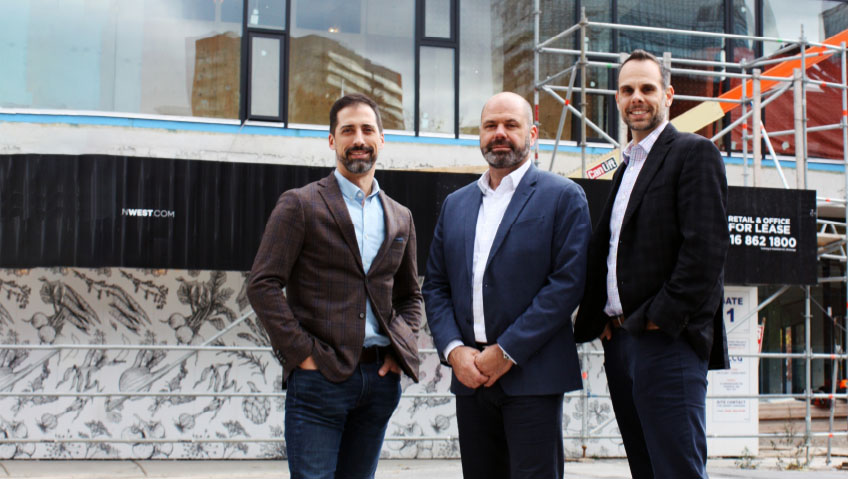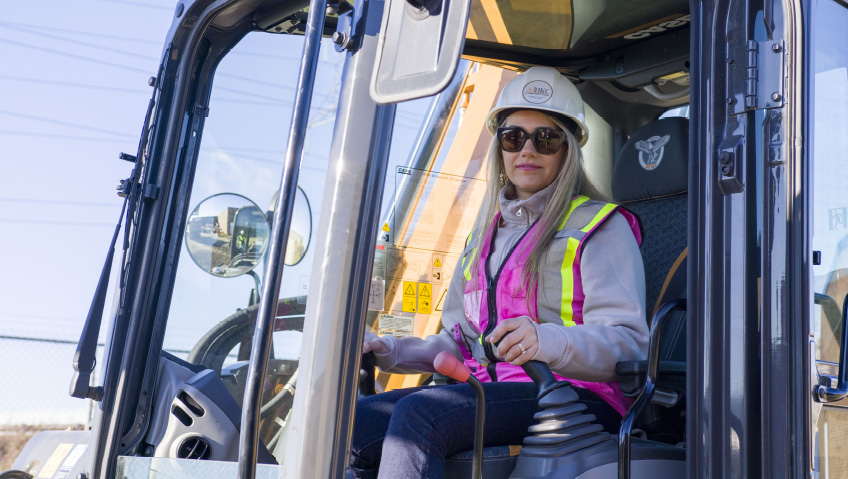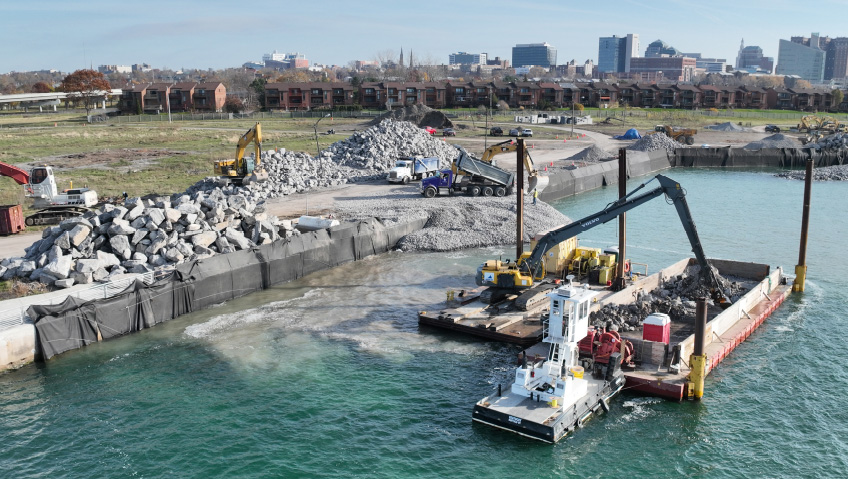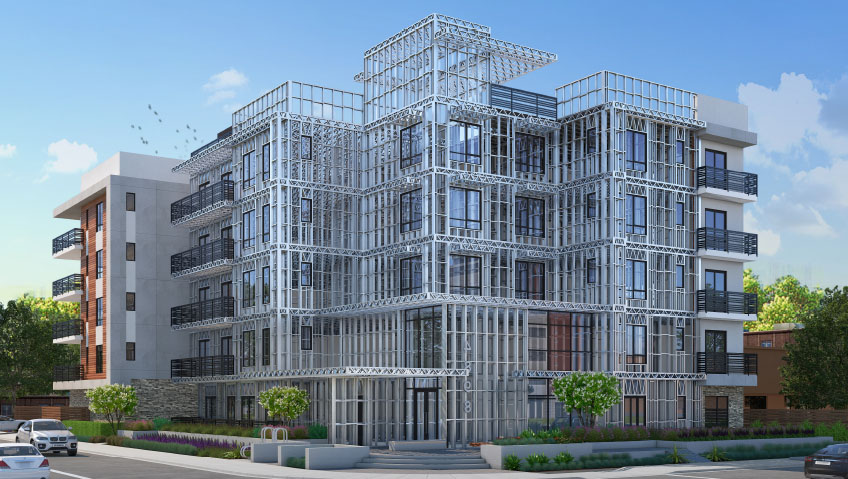Diverso Energy of Toronto is poised for huge growth as government mandates and environmental concerns from developers and home buyers spur interest in renewable energy.
This company specializes in geothermal solutions, going below the surface of the earth to tap into a stable, constant source of energy storage to heat and cool buildings through an array of underground pipes installed prior to construction. Founded seven years ago, the company designs, installs, owns, and operates its energy infrastructure, making it akin to a utility company.
“The key to Diverso Energy is that we’re not just a contractor; we own the system,” says Chief Executive Officer Tim Weber. “We’re taking full responsibility for all aspects of the success before, during and after construction. We’re essentially a financial partner, investing in the project. That changes the risk profile because the accountability has shifted from the developer to us. We also have hundreds of projects demonstrating we have the track record of success required to guarantee performance,” he shares.
The company’s geothermal systems replace boilers and cooling towers and do not interfere with existing underground cables and pipes. Once in place, a Diverso solution can reduce a building’s greenhouse gas emissions by up to one hundred percent.
Real-estate developers–who make up the bulk of the company’s clientele–sometimes express reservations about geothermal energy systems based on their experiences with traditional contractors who perform a task, then depart with no guarantee of success. Diverso aims to overcome such wariness by offering a full suite of services.
“We are the only firm—from soup to nuts—that has proven how to execute this business model and this technology for mid- to high-rise residential buildings. We are the only firm that has experience taking projects from the design through to contract, constructing the actual borefield, working with the construction team, transitioning over to the condo board, and, ultimately, managing the system and verifying it’s working effectively. Nobody in North America has ever done it before except for Diverso Energy,” states Chief Operating Officer Jon Mesquita.
Diverso was previously profiled in the December 2019 edition of Construction in Focus. At the time, it mostly worked with small-to-medium-sized developers but has broadened its range since then to include national accounts and some very tall buildings.
“We’re doing some pretty exciting projects. The size and scale of the projects have changed. We’re drilling a sixty-six-storey tower in Mississauga that will be the tallest geothermal building in North America—a building where the heating, cooling and ventilation is one hundred percent served by our geothermal system,” says Weber. This project, called the Exchange District Condos by Camrost Felcorp, is based in the rapidly-growing city of Mississauga, just outside of Toronto.
The company has taken on another big assignment at the Queen & Ashbridge condominiums in downtown Toronto. This “is significant because it’s the first project we’re doing with RioCan,” he says of the real estate giant. “They are a tier 1 national REIT.”
Geothermal solutions offer three core benefits to real-estate developers. These include “meeting policy mandates,” and, for larger clients, “showcasing corporate responsibility… The third reason is more of a practical concern; geothermal eliminates conventional equipment, freeing up additional space on the roof for either amenities space or additional real estate for lease or sale,” states Weber.
Toronto Green Standard Version 4 (TGS V4) is an example of the kind of policy mandate that will have an impact on future building development. Coming into effect May 1, 2022, the newest version of the standard imposes regulations designed to lower energy use and greenhouse gas emissions (GHG) in new buildings.
One way to abide by such parameters is to use low-emission, renewable energy sources for heating and cooling. Unlike solar power (which relies on sunny skies) or wind power (which depends on steady breezes), geothermal energy offers a reliable, consistent on-site source of energy, making it an appealing choice. There are no moving parts that need maintenance or can fail over time.
Diverso works chiefly in the office, retail, institutional, and multi-family residential markets. Of these sectors, multi-family residential brings in the most revenue—a reflection of the huge volume of condominium and apartment construction happening in the Toronto area. It has worked on projects in Kingston, Barrie, Kitchener, and other Southern Ontario locales as well.
The company is also “pursuing opportunities in the United States,” particularly in the north-eastern states that are also imposing emission restrictions on existing buildings and new construction alike, says Mesquita. Diverso would eventually like to have a presence on both the American and Canadian West Coasts.
Constructing large-scale, multi-family residences is a “very high-risk endeavour with a lot of variables that need to be managed,” notes Weber. This is another reason geothermal energy—a solution that is still relatively new in the Canadian market—has not been more widely embraced, he says. With new mandates looming, developers are taking a second look at geothermal energy. This is great news for Diverso and not just because the company excels at geothermal systems installation.
“Our process is focused on new construction. We have done retrofits and it does work, but with the market focus on new construction, it hasn’t been a main part of the business,” explains Professional Engineer and Chief Technical Officer Sergio Almeida. “We work at street level and drill from that surface down six or eight hundred feet. We install a pair of plastic (high-density polyethylene) pipes and then fill that hole up with a bentonite slurry to seal it from both an environmental standpoint and for thermal performance. That borehole with the two pipes is basically a heat exchanger that exchanges energy with the ground.”
It is a relatively simple premise, but to be successful, a geothermal installation needs to be properly integrated into the building systems. “The geothermal is only as good as the mechanical system it’s connected to. It’s only as good as the building built around it. Those all have to be designed for each other,” notes Almeida, who co-founded Diverso with Weber and Mesquita and co-owns the company with them.
Proper installation is required to maintain the integrity of the system and prevent leaks. Good installation practises include working with experienced companies, using reliable technology, and performing continuous quality control checks.
There are misconceptions about the geothermal heating and cooling processes. One such misconception is the notion that “in Canada, every building is heating dominant, so we need boilers to balance the geothermal system. That couldn’t be further from the truth,” says Almeida.
In fact, some tall condominium towers in the Toronto area with lots of tenants and glazing have “huge cooling loads. The concern we have from a design and operations standpoint is managing cooling. Many people are putting boilers in and that will create problems,” he continues.
Similarly, geothermal system procurement needs to be treated differently than the procurement process for other building technologies. These systems are not “set it and forget it solutions,” but require monitoring and maintenance to avert problems, according to Almeida.
A Diverso system will last the lifetime of the building, but only when properly looked after, so the company manages the borefield long-term as a part of its business model. “I have not met a single property manager or building maintenance contractor that knows how to operate geothermal independently because there isn’t the volume out there, and they don’t have the expertise,” notes Almeida.
As a demonstration of its commitment and confidence in its methods, Diverso offers customers a long-term performance guarantee. “It’s written in our contract. We have a thirty-year agreement with the building owner or condo corporation. It’s a contractual obligation that the geothermal borefield will deliver adequate heating and cooling at rates and volumes that are predetermined for the life of the contract. If we don’t deliver, we don’t get paid, and there’s financial recourse for the condo corp. That’s putting a lot of accountability on us,” Weber says.
Presenting such unique terms is par for the course at Diverso, which prides itself on offering more than just pipes and installation services. The team is well-versed in all legal and contractual aspects of geothermal installations.
“There are a lot of nuances to this business model,” notes Weber. “The legal aspect of the arrangement alone is a significant part of this that is often overlooked.”
What makes the company unique is “understanding the entire process and making sure we are integrated in all the right aspects at the right time to ensure the client gets the best experience. When I say ‘client,’ I mean the developer, design team, construction team, and ultimately the condo corp,” says Mesquita.
The company also benefits from an ongoing partnership with Eolectric Capital of Quebec, a firm that supplies funding for renewable energy projects.
In addition to expanding its geographical reach, Diverso continues to “look at opportunities in the downtown Toronto market,” says Weber. “We’re looking at integrating other technologies to make geothermal more viable for the fifty- to seventy-storey towers.”
“We’re pushing the envelope as far as we can with solid, reliable data and technologies that will work. Our goal is to make sure every building that gets built in Ontario can be geothermal and can be done within our model, removing the capital cost barrier… We want to be synonymous with the word geothermal in North America. So, when developers think geothermal, they think Diverso Energy,” adds Mesquita.






